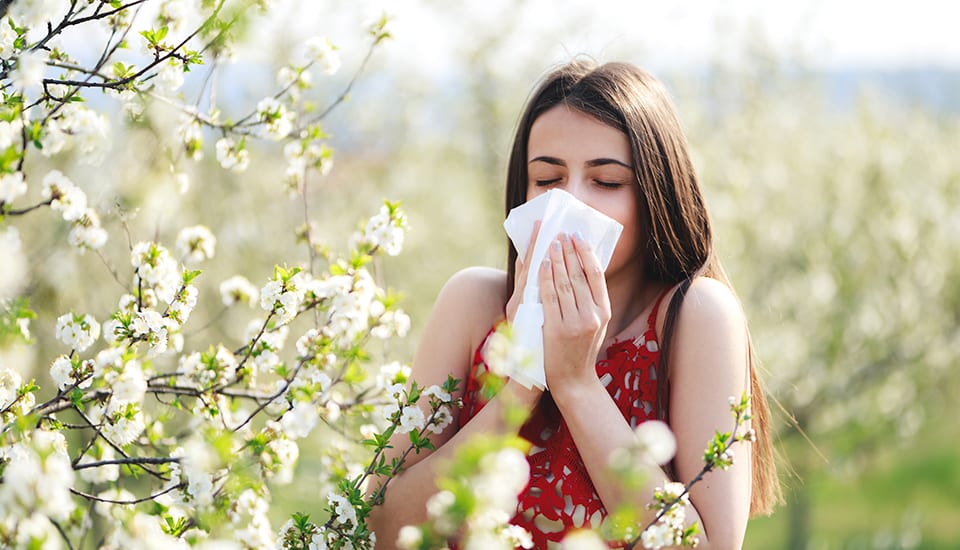
Having been a hay fever sufferer since childhood, I know only too well the love/hate relationship that many people have with the summer months. Where others look positively towards fetes and BBQs, I often face them with dread knowing that I will undoubtedly feel (and look) dreadful. Hay fever is not just about itchy eyes and a runny nose, sufferers can feel totally debilitated and it can take over you life. Seeking out a cool dark room is sometimes the only thing that can bring solace and it can be a huge struggle for teens as the peak of symptoms often clash with exam season.
During the first lockdown I made a commitment that I would follow a strict regime using both a nasal spray and antihistamines on a daily basis. With life being less hectic, I followed this and barely missed a day – I can honestly say that I hardly sneezed throughout the whole summer. It was truly a revelation. Perhaps I am just ‘growing out of it’ as my father seemed to do.
I was interested to do some further research into the different medicines out there and to try and understand if last year’s success could be repeated. I’ve always wondered what the different antihistamines do and which is most effective. After some research this is what I found:
What is an antihistamine
An antihistamine relieves the symptoms of allergies by stopping the effects of a substance called “histamine”, which is produced in the body when you are allergic to something.
What are the different types of antihistamine?
First generation antihistamines Chlorphenamine (including Piriton), hydroxyzine and promethazine, are more likely to make you feel drowsy. Advancements have meant that antihistamines are now available which are less likely to make you feel sleepy – Cetirizine and Loratadine are two common examples.
How long do they take to work?
They take about 30 minutes to start taking effect and are at their most effective after 1-2 hours. They are much better used as a preventative measure than after symptoms have started.
Which antihistamine is best?
There appears to be no simple answer to this question. You may take one type of antihistamine and have great success and then the next time it may not work -it really seems to be trial and error which can be frustrating.
Are branded products more effective than own brand?
Own brand products work just as well and are often significantly cheaper than branded products.
Can I take two different antihistamines at the same time
You must never take two different types of antihistamine at the same time without seeking professional advice from your GP first.
Does a nasal spray work?
Steroid nasal sprays, also called corticosteroid nasal sprays, are anti-inflammatory medicines that you spray into your nose and can be used to treat a range of conditions, including hay fever. Some steroid nasal sprays are available to buy from pharmacies and shops, while others are only available on prescription. They work by reducing inflammation (swelling) and this can help relieve symptoms such as sneezing and a runny or blocked nose.
Can I take antihistamines long term?
You should always read the recommendation on your medication, some types can be used for a long time, whilst others are only recommended for a few days
What are the different types of pollen?
There are three main types of pollen. The table below gives some further information of when they occur:
| Type | Season |
| Tree pollen | late March to mid-May |
| Grass pollen | from mid-May until July |
| Weed pollen | Typically end of June to September |
For further details on when different species of plants pollinate visit the UK allergy website here.
What else can I do?
- You can try putting Vaseline around your nose to catch pollen.
- Wearing sunglasses always seems to help.
- If you have been outside for any length of time, then shower, wash your hair and change your clothes when you come inside.
- There are higher pollen rates in the evening so do your outdoor exercise in the morning.
- If you can, try avoiding drying clothes outdoors, and if you do dry them on the line then shake them well before bringing them in – particularly bedclothes.
Further information
ENT UK is the professional membership body representing Ear, Nose and Throat surgery and they have some great information on their website.
If you have any tips or personal experiences dealing with hay fever, please leave a comment below.


